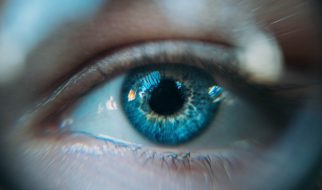4 months on cross-sex hormones
In early December of 2016, I began an experiment. I wanted to find out whether transitioning from male to female would cure my depression. With support from my therapist, I found a doctor and began a regimen of testosterone blockers and estrogen. A month later, blood work showed my levels of both hormones were solidly within the natal female range.
It was surprisingly easy to do this. Once I got past many months of agonizing over a course of action, and then a few more weeks just working up the courage to make a phone call, it was only a matter of going to the clinic, discussing the medical implications of treatment, and signing a form saying I understood what I was doing. A blood test and a trip to the pharmacy later, I had the pills in hand.
The thing I noticed immediately was that nothing was immediately noticeable. I didn?t feel the sudden calm or rightness that many transgender people say they feel when their brains are operating on the correct hormones. I didn?t feel anything at all aside from eagerness and curiosity. At least, not right away.
Aside from not curing my depression, feminizing hormones have been everything I hoped for. Breast growth began in the first month, sooner than expected, and as of today they?re large enough to cup in my hands. I could probably still get away with going shirtless at the beach, but just barely. They jiggle painfully when I walk down stairs. Other than being anxious about hiding them, I?m okay with having breasts.
My skin is softer, I think. Softness isn?t exactly something you can measure, so this may just be a placebo effect, but it seems like the veins on my legs and forearms are less visible. I got carded when buying alcohol for the first time in years. Then it happened again the next day. I?m 36 years old.
My hair is growing back. I didn?t expect this at all (in fact, the consent form specifically says not to get your hopes up), but there?s now a half-inch of light fuzz where my scalp was once visible on the top and back of my head. Unfortunately, the receding hairline in front isn?t doing so well. It?s crept back forward a little bit, but my hairline has been slowly receding since high school, so I assumed it was too far gone to recover. So be it.
The most unexpected thing, and maybe the most welcome, is that I smell better. I can now go 2 or 3 days between showers and not notice. Before, my hair would get really greasy, so I would have to wash it every morning even if I took a shower the night before, otherwise it would start looking stringy and gross before the end of the work day. Now I just wash it when I shower and it?s fine.
The biggest change has been to my libido. It?s tanked. Erections don?t happen anymore unless I try to make it happen, which I don?t do nearly as often as I used to, and even then it takes more effort than before. I?m conflicted on this development. On the one hand, I?m worried about my relationship with my wife. On the other hand, for my entire life these feelings have been linked to sex and I thought of them as a fetish, but now the dysphoria is still there even though I?m not aroused. This is valuable intel that I?m taking into consideration for my next course of action.
A few weeks ago, I went back to the doctor for a 3-month follow-up visit. She asked how things were going and I told her that I was having doubts. The experiment hadn?t produced any solid results. There was no sense of clarity, no answers to the question I was asking. I said it felt pointless to take feminizing hormones, even if I did like their effects, since I wasn?t going to transition. She tried to hide a light smirk and said something to the effect of ?I think you are.?
It was an off-handed comment that I ignored at first, but then later asked her to elaborate on what she meant. She talked about the different components of gender transition: social, medical, and surgical. I may not be dressing publicly in women?s clothes or asking people to recognize me as female, and I certainly don?t have any surgeries planned, but medical transition is just hormone therapy, which I?m now months into. Therefore, I am medically transitioning. Her argument was logical, but I still resisted it.
She also talked about how social support and self-acceptance would help the depression more than any chemicals would. I resisted that advice too.
By the end of the visit I?d decided to stay on the testosterone blockers and to lower the estrogen dosage to see if that slows breast growth. I also got a prescription for an anti-depressant.
My plan when I started all this was to try hormone therapy for 3?6 months and see how it felt, then switch off that and try an anti-depressant for a few months so I could compare them and see which is more effective. I was and am not convinced that gender dysphoria is the primary cause of my depression. This experiment was meant to provide information to help parse out just how much of a factor it is.
Now, having been on female hormones for nearly 4 months, I realize that the thought of going off them is vaguely terrifying. I like the effect they?re having on my body. There are moments of doubt, and a few of those moments have manifested as intense anxiety that makes me hate everything I?m doing, but on most days I know that these are positive changes. It feels like progress.
I?ve added the anti-depressant to my worryingly large collection of medication, though it?s too early to know what effect it will have. If there?s an obvious improvement in my mood, I might still decide that hormones are an unnecessary treatment, but that seems unlikely.
What I?m hoping, though I still have trouble admitting it to myself, is that the anti-depressant will reset my brain chemistry back to pre-depression levels where I felt motivated and occasionally happy. Then I can stop taking it and focus on using hormones not as a depression treatment, but for their intended purpose: to keep the gender dysphoria at bay. And maybe, in some future I can?t envision yet, actually cure it.

